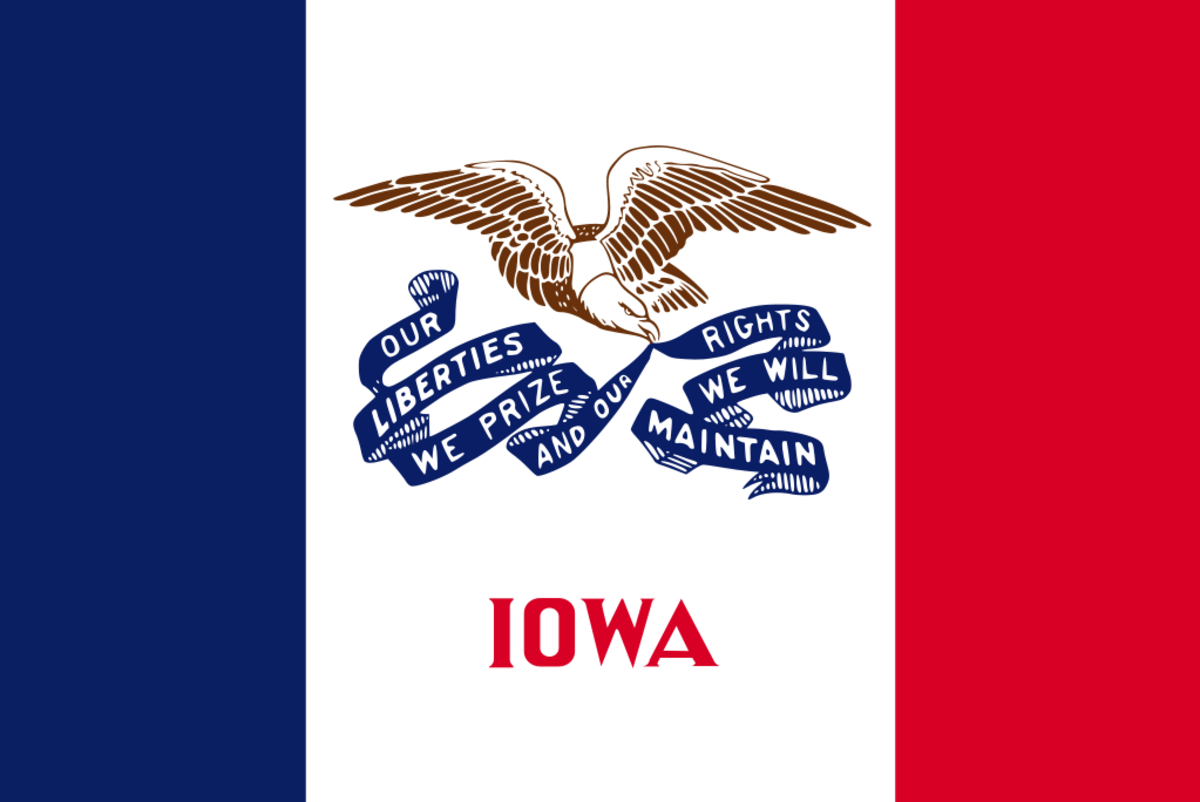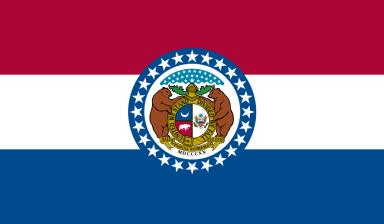Iowa Employment and Labor Laws

Iowa's labor and employment laws have been passed and changed over the years to make the working conditions better for the people who live and work there. Employment law deals with interactions and concerns that arise between employees and employers, whereas labor law is concerned with regulations that apply to the relationship between employers and labor unions. For example, the Iowa Civil Rights Act was changed in 2007 to include "gender identity" with its own definition in the list of protected characteristics. This means that it is illegal to discriminate against members of the LGBTQ community based on their sexual orientation or gender identity.
While laws are amended to further improve workers' rights, the Equal Employment Opportunity Commission still receives tens of thousands of discrimination complaints each year. There have been 73,485 filings in 2022 alone, with retaliation and disability cited as the top two reasons.
One of the EEOC's landmark cases happened in Iowa in 2013. The commission was awarded $240 million in damages in court against Henry's Turkey Service. The business was proven to have subjected 32 workers with intellectual disabilities to years of severe abuse and discrimination in its branches in Atalissa and West Liberty. Damning actions committed to the employees include physical and verbal abuse, exploitation, and isolation. The case remains to be the agency's largest jury verdict in its history.
It is important to know what rights you have in the employment landscape. In this article, we will discuss various employment and labor laws in Iowa. These include wages, workplace safety, discrimination, and labor unions. We will also tackle what to do in the event that you are wrongfully terminated, including legal grounds to pursue a case, where to file a complaint, and what you will receive if you win your lawsuit.
Iowa Wage and Hour Laws
Minimum Wage
Iowa is one of the states in the US that follows the federal minimum wage of $7.25 per hour. However, there are situations where an employer is eligible to pay below the minimum wage:
If you are a newly hired employee, your employer can choose to pay you the "initial employment wage" of $6.35 per hour for the first 90 days with the company.
If you earn at least $30 in tips per month, your employer may opt to pay you as little as $4.35 per hour. If the amount of tips you receive does not average $7.25 per hour, your employer will have to pay the difference.
Businesses earning less than $300,000 per year are exempt from paying the minimum wage to their employees.
According to the Iowa Minimum Wage Law, there are some types of businesses that are required to pay at least the minimum wage to their employees regardless of how much they earn per year, including:
Companies whose services are cleaning, laundering, or repairing clothing;
Hospitals;
Construction and reconstruction businesses;
Public agencies.
Wage Payment and Collection
Based on Iowa employment and labor laws, employers in the state are expected to pay their employees on regular paydays in monthly, semimonthly, or biweekly installments. For employees who are paid on a commission basis, the employer can pay them using credit at regular intervals.
Employees whose jobs have been suspended or terminated must be compensated by the next regular payment. For commission-based employees, the employer must pay the remaining credit within 30 days of the contract's suspension or termination.
Wage Deductions
In most situations, employers are not allowed to deduct wages. They can only do this if state or federal law permits it through a competent jurisdiction order or if they have written authorization from an employee to deduct their wages for any legitimate purpose.
This means that employers cannot deduct your wages for the following items:
Cash shortages from a cash register or common money till handled by two or more employees;
Tips received from customers;
Losses caused by bounced checks you accepted on behalf of your employer;
Losses due to broken or stolen equipment and property damage;
Losses caused by customers not providing payment.
Overtime
Based on the Iowa Administrative Code and the Fair Labor Standards Act, employers in Iowa are required to pay all employees 1.5 times the usual hourly rate for any hours worked in excess of 40 per week. Employees can either be paid through cash or compensatory time (time off of work), depending on their decision.
According to federal law, there are certain types of employees who are exempt from receiving overtime pay, including:
Independent contractors;
Administrative, executive, and professional employees (with some exceptions);
Outside sales workers;
Computer employees such as software engineers, computer system analysts, and computer programmers.
Leaves
When discussing time off from work, two terms are used: time off and leave of absence. A time off is shorter and has a projected date of return to work, whereas an LOA is longer, and the date of return to work can be unclear.
While there are no state laws that require employers to give unpaid time off or sick leaves, Iowa follows the Family and Medical Leave Act when it comes to providing them for employees. Through this law, eligible employees are entitled to up to 12 weeks of FMLA leave in a fiscal year. In addition, the FMLA gives 26 workweeks of leave a year to care for a covered service member.
If you or a family member has suffered a catastrophic injury or sickness but has spent all available paid time off, you may be eligible for a donated vacation.
Employers are mandated to provide veterans with time off on November 11, which is Veterans Day.
Workplace Safety Laws in Iowa
According to Iowa employment and labor laws, employers are required to protect their employees by complying with occupational safety and health standards. They should also provide a workplace free of hazards that may cause serious harm or death, in accordance with Chapter 88 of the Iowa Code. Likewise, it is necessary for employees to abide by the state and federal laws' safety rules and regulations.
Additionally, the Iowa Hazardous Chemicals Risk Right-to-Know Law mandates employers to notify their employees about the dangerous chemicals to which they may be exposed while at work. This can be done through training, labels, hazard communication programs, material safety data sheets, and other forms of warning.
If one or more employees had a bodily part amputated or lost an eye as a result of a work-related accident, the employer must notify Iowa OSHA within 24 hours of the in-patient hospitalization. If a worker dies as a result of a workplace incident, the employer is required to report the death within eight hours. They can reach the organization by calling 877-242-6742. They must also submit an incident form.
If you believe that your company does not follow the rules and regulations of OSHA, you can file a complaint online. For the form to be considered and more likely to result in a special onsite inspection, at least one current employee or an authorized employee representative must sign it.
If an employer is proven to have violated the rules, they will receive penalties set by the federal OSHA.
Required Posters in Iowa Workplaces
The Iowa Workforce Development agency requires various state and federal posters to be displayed in state workplaces. Below is a table that lists the needed state posters and their descriptions:
Iowa's Civil Rights Act
Iowa employment and labor laws include sections on workplace discrimination and harassment, such as the Iowa Civil Rights Act of 1965. This means that it is illegal to discriminate against an employee based on various factors, such as:
Age;
Race;
Color;
Sex;
Gender identity;
Sexual orientation;
Disability;
Religion;
Creed;
National origin.
The state's Civil Rights Act not only prohibits harassment in the workplace but in other areas as well, including credit, education, public accommodation, and housing. Moreover, various discrimination and harassment practices are deemed unlawful. Some of these include:
Paying a worker at a lesser rate compared to other employees;
Refusing to hire an employee based on the factors listed above;
Terminating an employee's job or failing to reach an employment agreement as a result of an HIV test;
Refusing to accept an employee's request for leave due to pregnancy, delivery, or other medical problems.
However, this law does not apply to companies that have less than four employees or to workers and employers who live in the same residence.
Iowa's Labor Union Laws
Iowa's main labor law is the Iowa Public Employment Relations Act, which focuses on labor union rights. A labor union is a collection of employees whose major objective is to fight for workers' rights and improve their working conditions. The actions labor unions can take include collective bargaining, picket line formation to conduct rallies, and submission of complaints through the right channels.
It is crucial to note that Iowa is a right-to-work state. Under Chapter 731 of the Iowa Code, employees have rights pertaining to labor unions and employment that are discussed below:
Right to employment: It is illegal to deny an individual the ability to work in their chosen occupation for any employer because they belong to or refuse to join a labor union;
Prohibition on exclusionary contracts: It is illegal for an employer to enter into an oral or written agreement that excludes employees who are and are not union members from employment;
Prohibition of union-security agreements: It is unlawful for an employer to require anyone, directly or indirectly, to pay charges, dues, fees, fines, or contributions to any labor organization as a prerequisite to employment;
Disallowance of deductions for labor union dues: It is unlawful for an employer to deduct labor union fees from an employee's wage, earnings, or compensation unless the employer was provided a written and signed notice from the worker.
The main point of this law is that every worker in Iowa has the right to work, whether or not they belong to a labor organization. This means that individuals are not compelled to join a labor union and pay fees to get a job. However, making labor union membership optional also means less collective bargaining power for labor organizations.
If an employer or labor union violates Chapter 731, they will be charged with a serious misdemeanor. Penalties include a fine that can range from $430 to $2,560 and up to a year in jail.
Is Iowa an At-Will Employment State?
Yes. Iowa is an at-will employment state. In this context, "at-will" indicates that both you and your employer can terminate your employment at any moment for any legal reason (or no reason). On one hand, your employer can end your employment at any time as long as it is within legal grounds. On the other hand, you can choose to resign at any time.
What Qualifies as Wrongful Termination in Iowa?
Even though Iowa is an at-will employment state, there are various circumstances in which a termination of employment is considered illegal. Discrimination is a prime example. Your employer cannot lawfully terminate you based on your race, gender, sexual orientation, religion, or any of the other reasons specified in one of the preceding sections.
Retaliation is another form of wrongful termination. It is illegal for an employer to fire an employee for reporting unlawful practices committed to the appropriate authorities. For instance, you have reported your company to Iowa OSHA for failing to observe workplace safety rules and regulations. Your employer then dismissed you for speaking out about its practices. This is prohibited, and you can file a lawsuit.
Getting fired for exercising your rights is also grounds for wrongful termination. The Iowa Supreme Court's adoption of some exceptions made this possible. These include asking for workers' compensation for your injuries and requesting a pregnancy leave, provided that the situation at hand fulfills the requirements set by the court.
How Do You Report an Employer in Iowa for Wrongful Termination?
Depending on your circumstances, you must report the wrongful termination to the appropriate authorities.
If you are fired for discriminatory reasons, you must file a complaint with the Iowa Civil Rights Commission. There are two ways to file one: either online or on paper. For hard copies, you must include important information such as the area in which the discrimination happened (in this case, employment), discriminatory actions committed against you (e.g.,., termination), the most recent date when the discrimination occurred, and a summary of the allegations. You can send them via:
Mail addressed to the Iowa Civil Rights Commission headquarters located at 400 East 14th Street in Des Moines;
Fax 515-242-5840.
If the ICRC does not plan to file your case with the Equal Employment Opportunity Commission, you can file your complaint directly with the federal agency.
If your company fired you in retaliation for reporting violations of workplace safety rules and regulations, you can file a complaint by sending a complaint form to the Iowa OSHA online. You need to provide various details, such as employer information, your contact details, and reasons for action taken.
Filing a complaint with the ICRC or the EEOC is needed before you can file a wrongful termination lawsuit. It is recommended that you hire an employment lawyer to assist you with your case. They will not only help you in filing your lawsuit (including evaluating your case and obtaining evidence to show your side), but they will also explain the options available to you.
What is the Statute of Limitations for Wrongful Termination Cases in Iowa?
The statute of limitations for filing a wrongful termination lawsuit depends on the circumstances influencing your case.
How Much Can Someone Sue an Employer in Iowa for Wrongful Termination?
There are two types of damages one can receive compensation for in an Iowa employment lawsuit: economic and non-economic. Economic damages are those that can be easier to calculate compared to non-economic ones, such as lost wages. Meanwhile, non-economic damages are harder to put a value on, including emotional distress from being fired.
In terms of awards, the amount one can receive ranges from thousands to millions of dollars (the typical wrongful settlement ranges between $4,000 and $100,000). However, large awards are mostly due to punitive damages. Punitive damages are given with the purpose of punishing the offender for their malicious actions. A lawyer with years of experience in employment law can help you maximize the award you can receive in a case.
Resources for Employees in Iowa
Iowa Division of Labor
The Iowa Division of Labor is the state's main agency that strives to protect employees in the workplace through a range of initiatives and programs. It provides information and manages processes involving wage claims, safety and health compliance, and whistleblower protection. In addition, it tackles child labor rights by handling youth employment waiver applications. Individuals can contact the division by submitting an online contact form or calling at 515-242-5870.
Iowa Civil Rights Commission
The Iowa Civil Rights Commission is a government entity tasked with handling civil rights complaints and assisting residents in receiving a satisfactory resolution to their cases. Its primary mission is to enforce the Iowa Civil Rights Act, which includes giving information on protected classes and areas, as well as complaint forms.
Iowa Legal Aid
The Iowa Legal Aid is a nonprofit organization that assists low-income earners in Iowa with their law-related matters. It has resources in a wide range of practice areas, including family, immigration, and education. It provides relevant information on work issues such as unemployment, taxes, rights for people with disabilities, and wage claims. In addition, it partners with organizations like the Legal Services Corporation, United Way, and AmeriCorps. Interested individuals can apply for its services by calling 1-800-532-1275 or sending an application online.
Expertise.com StaffAuthor
Step into the world of Expertise.com, your go-to hub for credible insights. We don't take accuracy lightly around here. Our squad of expert reviewers, each a maestro in their field, has given the green light to every single article you'll find. From rigorous fact-checking to meticulous evaluations of service providers, we've got it all covered. So feel free to dive in and explore. The information you'll uncover has been stamped with the seal of approval by our top-notch experts.




